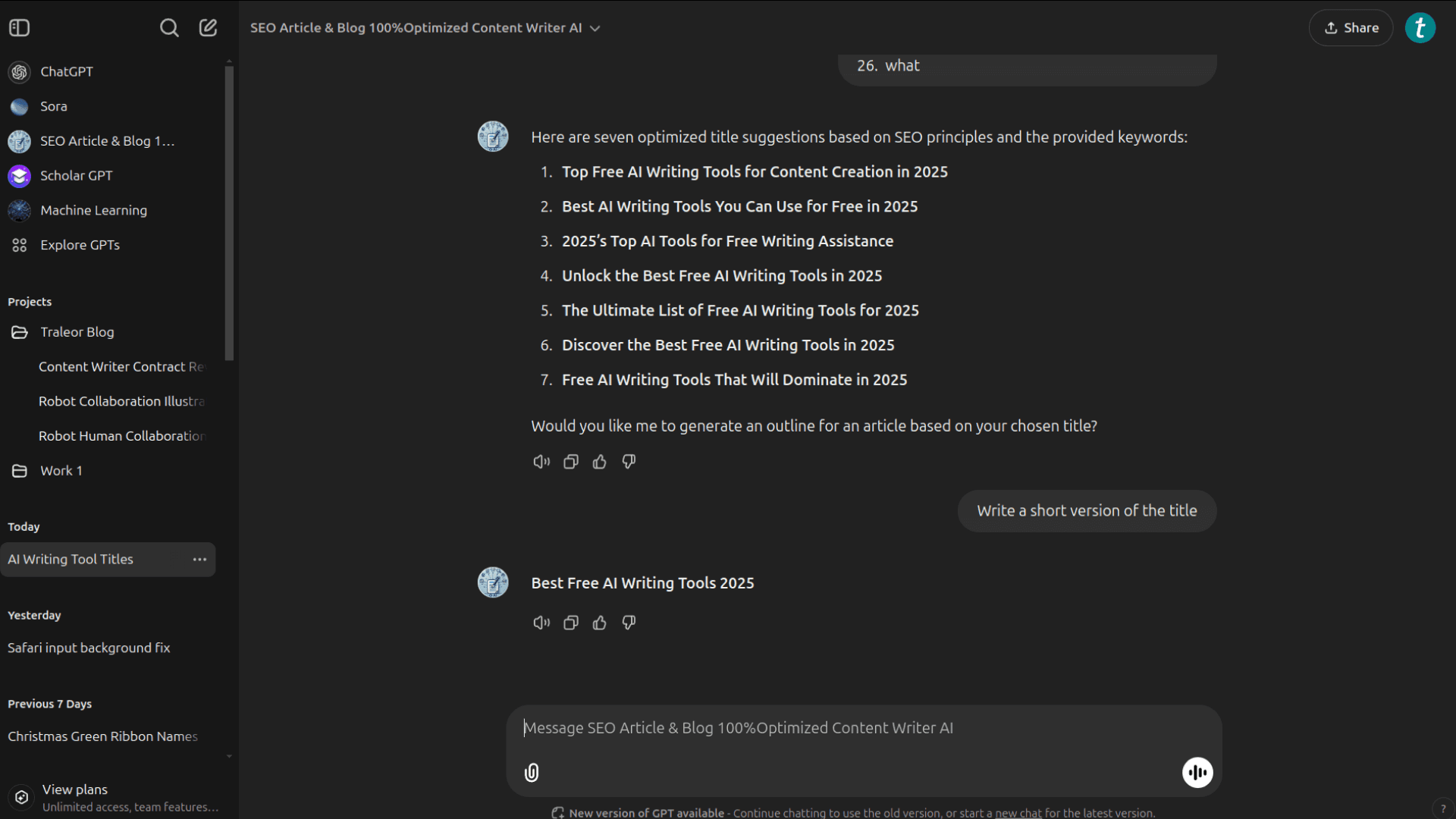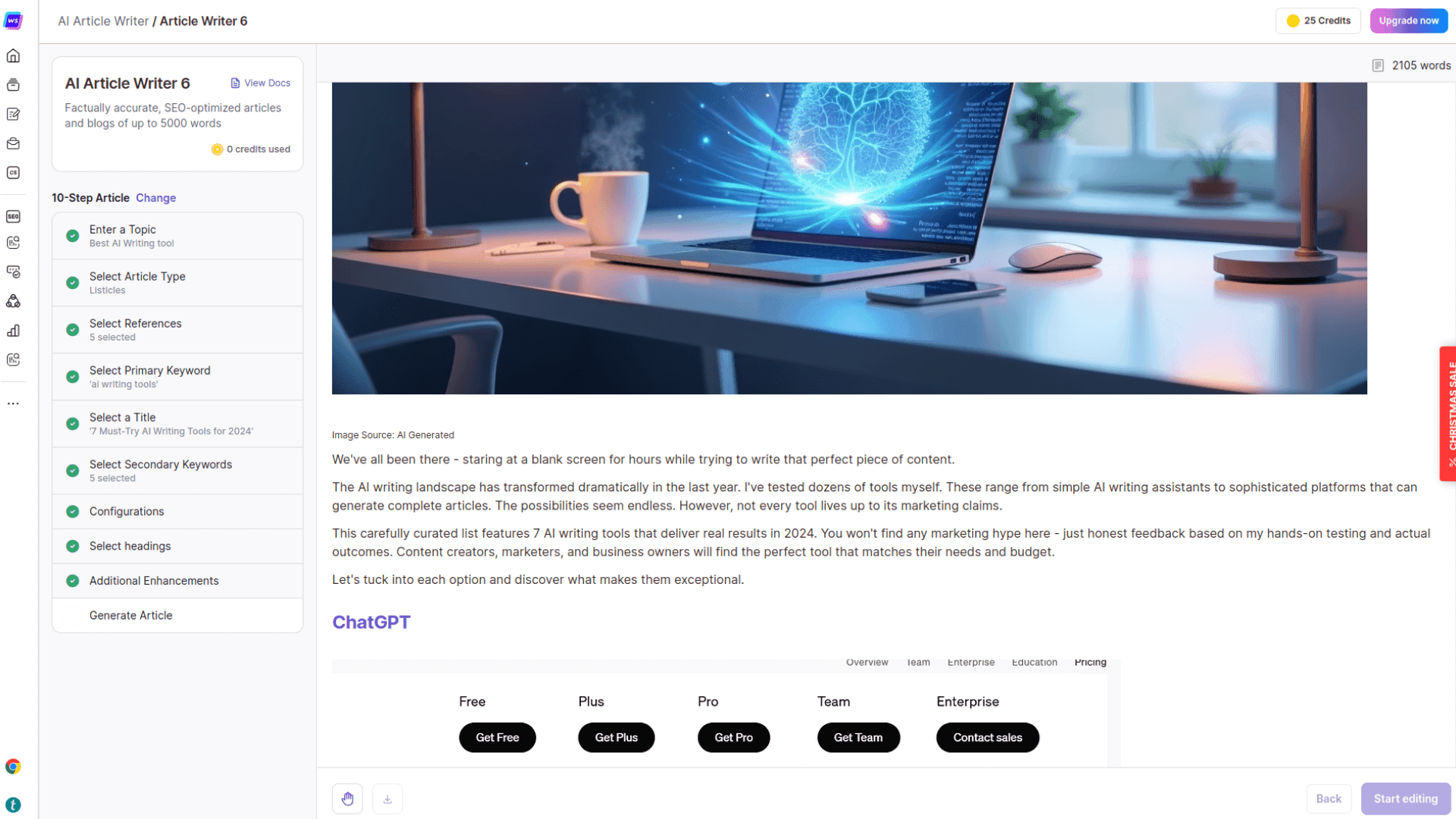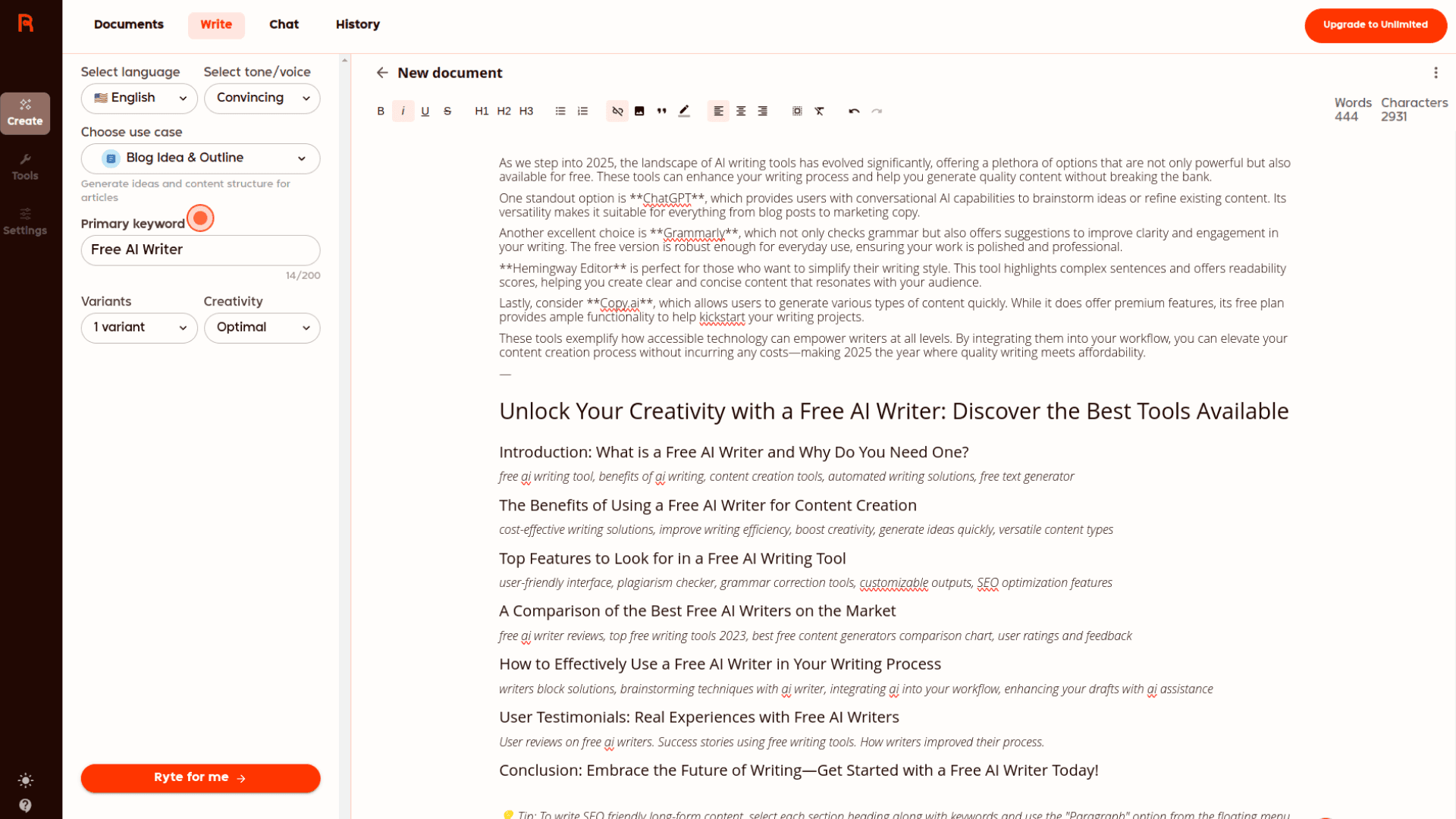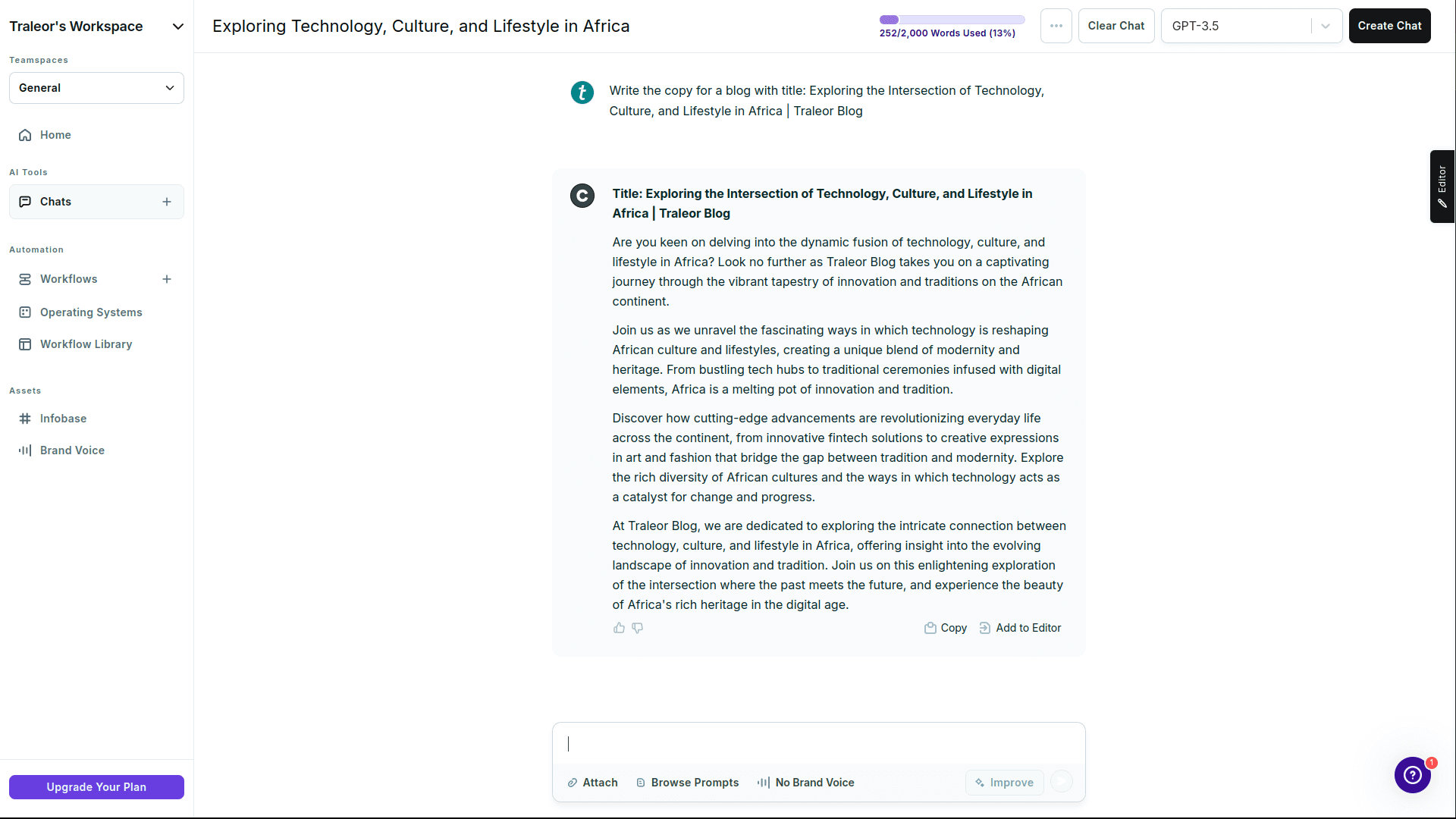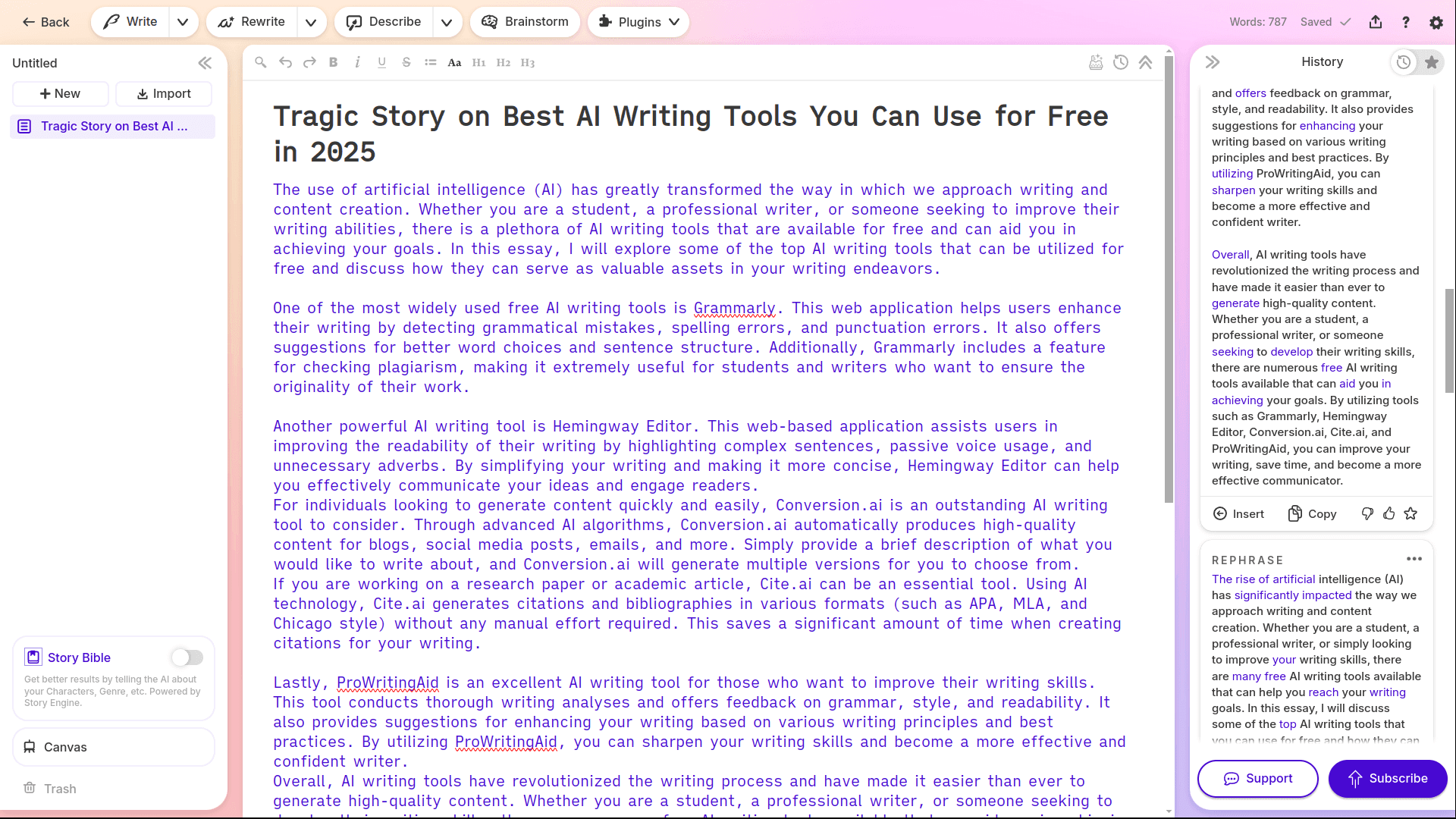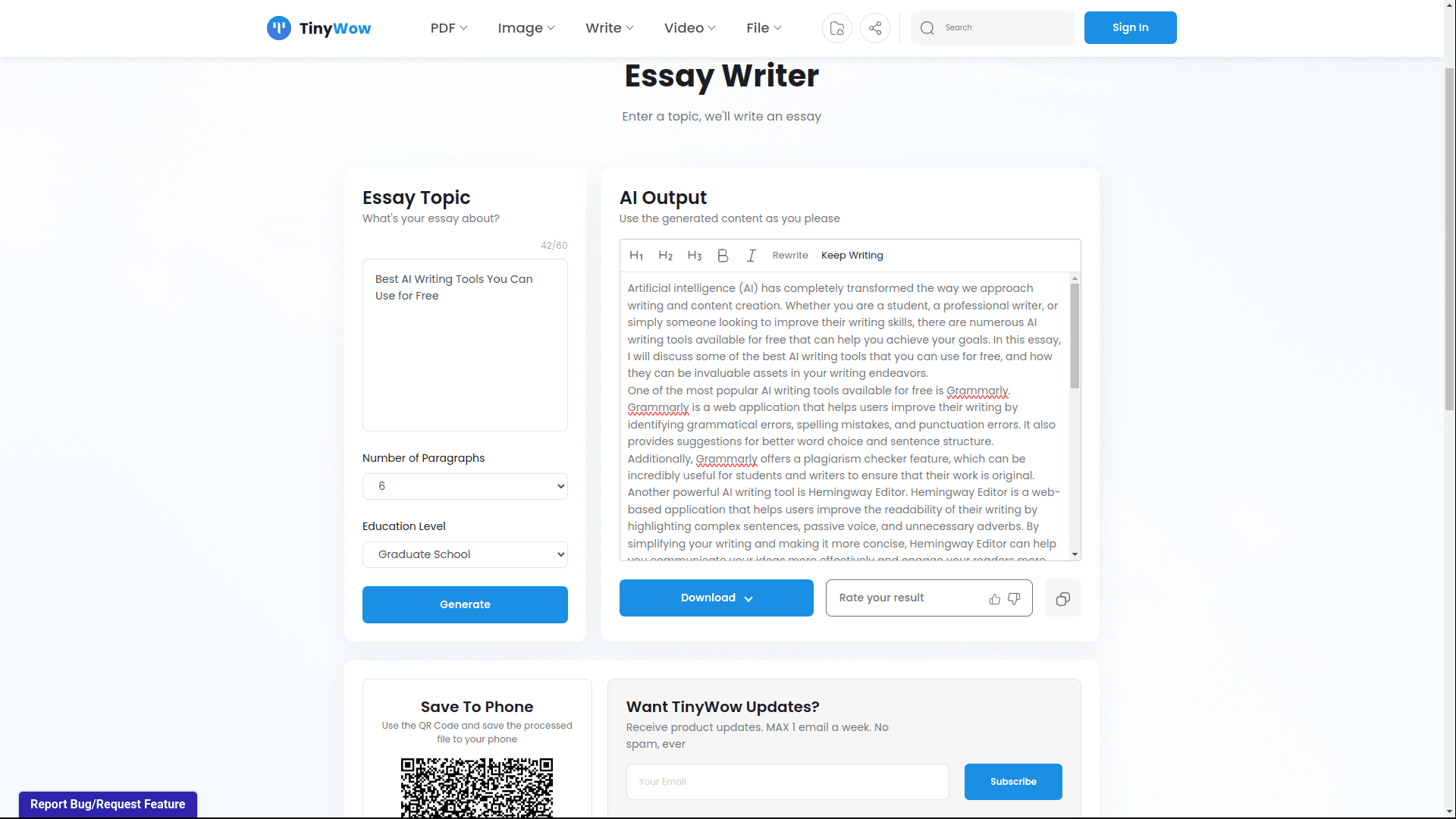

In recent years, artificial intelligence (AI) has reshaped countless industries, with content creation standing out as a prime example. From streamlining workflows to unlocking new levels of creativity, AI-powered tools have become indispensable for individuals and businesses alike, redefining how content is envisioned, crafted, and delivered.
From blog posts to social media captions, these AI writing assistants help writers tackle everything from overcoming writer's block to improving content quality and even optimizing for search engines. Whether you're a marketer looking to generate persuasive copy for a campaign or a student drafting a research paper, AI-powered AI content writers offer a wealth of benefits, making them valuable tools for improving writing productivity.
The demand for high-quality content across different platforms is growing, and AI writing tools have stepped in to meet this need. These tools, driven by large language models and natural language processing (NLP), generate AI-generated content that’s more coherent and relevant than ever before. In this guide, we’ll explore the best AI writing tools, how to evaluate them, and how they can be used to streamline the writing process, enhance creativity, and boost efficiency.
Outline:
2. Top Free AI Writing Tools in 2025
3. How to Choose the Right AI Writing Tool for Your Needs
- Step 1: Identify Your Writing Goals
- Step 2: Consider Your Budget and Free Plan Limits
- Step 3: Evaluate Ease of Use and User Interface
- Step 4: Check for Integration Capabilities
- Step 5: Test Output Quality and Accuracy





